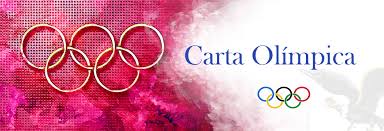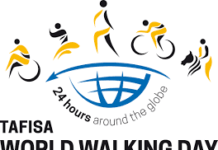 En agosto de 2021, Liviu Crisan, presidente de la World Union of Karate-Do Federations (WUKF), envió una carta abierta a Antonio Espinós, presidente de la World Karate Federation, con copia al entonces presidente del Comité Olímpico Internacional, Thomas Bach. El mensaje fue respetuoso, pero firme y con visión de futuro. Aunque Crisan elogió el desempeño de los atletas de la WKF en los Juegos Olímpicos de Tokio 2020, también expresó una preocupación grave: el karate había sido excluido del programa olímpico de París 2024, y el futuro del deporte dentro del Movimiento Olímpico era incierto.
En agosto de 2021, Liviu Crisan, presidente de la World Union of Karate-Do Federations (WUKF), envió una carta abierta a Antonio Espinós, presidente de la World Karate Federation, con copia al entonces presidente del Comité Olímpico Internacional, Thomas Bach. El mensaje fue respetuoso, pero firme y con visión de futuro. Aunque Crisan elogió el desempeño de los atletas de la WKF en los Juegos Olímpicos de Tokio 2020, también expresó una preocupación grave: el karate había sido excluido del programa olímpico de París 2024, y el futuro del deporte dentro del Movimiento Olímpico era incierto.
Sin embargo, la exclusión de los Juegos Olímpicos no es el único problema. Está emergiendo una cuestión más profunda y sistémica. La WKF ha recibido autoridad exclusiva para representar al karate en los Juegos Olímpicos de la Juventud Dakar 2026. Como consecuencia, solo los atletas afiliados a la WKF a través de sus federaciones nacionales serán elegibles para participar. En términos prácticos, esta decisión excluye automáticamente a millones de jóvenes karatekas que entrenan y compiten bajo otras federaciones internacionales como la WUKF, la ITKF, la IKO y otras. Estos atletas, pese a su talento y dedicación, no tendrán ninguna vía para llegar a los Juegos Olímpicos de la Juventud.
Una carta por la igualdad, pero un sistema que excluye
La Carta Olímpica es clara en cuanto a sus principios de equidad.
«La práctica del deporte es un derecho humano. Toda persona debe tener la posibilidad de practicar deporte, sin discriminación de ningún tipo.» Carta Olímpica, Principio Fundamental 4
«Todas las organizaciones deportivas y los atletas deben tener acceso igualitario a los Juegos Olímpicos, sin exclusión injusta.» Carta Olímpica, Regla 19
A la luz de estos principios, el modelo actual plantea serias preocupaciones éticas y estructurales. El reconocimiento por parte del COI de una sola federación para el karate ha creado un sistema de gobernanza que deja fuera a la gran mayoría de los practicantes en todo el mundo. Comunidades enteras de atletas quedan excluidas, no por falta de mérito, sino por decisiones administrativas relacionadas con su afiliación nacional o internacional.
Esto constituye una forma estructural de exclusión. Castiga a jóvenes deportistas por pertenecer a la «federación equivocada», incluso cuando esa federación es activa, legítima y ampliamente respaldada en su región.
¿Quién debe rendir cuentas?
Es válido preguntarse por qué el COI, una organización que defiende valores como la igualdad y la inclusión, ha apoyado un modelo que fomenta el monopolio y la división dentro de la comunidad global del karate.
Al reconocer únicamente a la WKF, el COI ha contribuido a crear un entorno en el que la diversidad de estilos, sistemas de gobernanza y filosofías se ve reducida a un único formato. Esto ha dado lugar a casos documentados de atletas sancionados por competir en eventos fuera del circuito WKF, y ha contribuido a la marginación de estilos y sistemas que no forman parte del marco dominante.
Esta no es una crítica personal hacia ningún individuo del liderazgo actual del COI. Es un llamado a la reflexión institucional sobre cómo el propio Comité puede alinearse mejor con los valores que promueve. La nueva presidencia del COI representa una oportunidad para revisar estructuras arraigadas y abrir la puerta a sistemas más justos e inclusivos.
¿Un nuevo capítulo olímpico para el karate?
Con un nuevo liderazgo llega una nueva oportunidad. El COI tiene ahora la posibilidad de corregir el rumbo y dar pasos hacia un futuro más abierto y representativo para el karate. Eso implica dialogar con otras federaciones, ampliar los sistemas clasificatorios y reconocer la verdadera diversidad del deporte en todo el mundo.
Millones de jóvenes karatekas no deberían quedar excluidos del sueño olímpico por razones burocráticas. El Movimiento Olímpico debe empoderarlos, no cerrarle las puertas.
Los Juegos Olímpicos de la Juventud 2026 pueden marcar un punto de inflexión. Pero solo si el COI elige la inclusión en lugar de la exclusión, y se compromete plenamente con los valores que durante tanto tiempo ha proclamado defender.
___________________________________________________________________
In August 2021, Liviu Crisan, President of the World Union of Karate-Do Federations (WUKF), addressed an open letter to Antonio Espinós, President of the World Karate Federation, with a copy sent to the then-President of the International Olympic Committee, Thomas Bach. His message was respectful, yet firm and forward-looking. While praising the performance of WKF athletes at the Tokyo 2020 Olympics, Crisan raised a serious concern. Karate had been excluded from the Paris 2024 Olympic programme, and the future of the sport within the Olympic Movement had become uncertain.
However, exclusion from the Olympic Games is only part of the issue. A deeper and more systemic problem is now unfolding. WKF has been granted exclusive authority to represent karate at the 2026 Youth Olympic Games. As a result, only athletes affiliated with WKF through their national federations will be eligible to participate. In practical terms, this decision automatically excludes millions of young karateka who train and compete under other international federations such as WUKF, ITKF, IKO and others. These athletes, despite their talent and commitment, will have no path to the Youth Olympics.
A charter of equality, yet a system of exclusion
The Olympic Charter makes its position on fairness very clear.
“The practice of sport is a human right. Every individual must have the possibility of practising sport, without discrimination of any kind.” Olympic Charter, Fundamental Principle 4
“All sports organisations and athletes shall have equal access to the Olympic Games, without unjust exclusion.” Olympic Charter, Rule 19
In light of these principles, the current framework raises serious ethical and structural concerns. The IOC’s recognition of only one federation for karate has created a model of governance that leaves out the vast majority of practitioners worldwide. Entire communities of athletes are excluded, not because of lack of merit, but because of the administrative choices of their national or international affiliation.
This is a structural form of exclusion. It punishes youth athletes for belonging to the “wrong” federation, even when that federation is active, legitimate, and widely supported within its region.
Who is accountable?
It is fair to ask why the IOC, an organisation that champions values like equality and inclusion, has supported a model that fosters monopoly and division within the global karate community.
By recognising only the WKF, the IOC has helped create an environment where diversity of style, governance, and philosophy is reduced to a single template. This has led to documented cases of athletes being banned from competing for participating in non-WKF events, and has further marginalised styles and systems outside the dominant WKF framework.
This is not a personal critique of any individual in IOC leadership. It is a call for reflection on how the institution itself can better align with its own values. The new leadership of the IOC represents a chance to re-evaluate longstanding structures and open the door to fairer, more inclusive systems.
A new Olympic chapter for karate?
With new leadership comes new opportunity. The IOC has a chance to correct course and take steps toward a more open and representative future for karate. That includes engaging with other federations, opening qualifying systems, and recognising the real diversity of the sport around the world.
Millions of young karate athletes should not be excluded from the Olympic dream because of bureaucratic affiliation. The Olympic Movement should lift them up, not lock them out.
The 2026 Youth Olympic Games could be a turning point. But only if the IOC embraces inclusion over exclusion, and lives up to the values it has long claimed to uphold.








